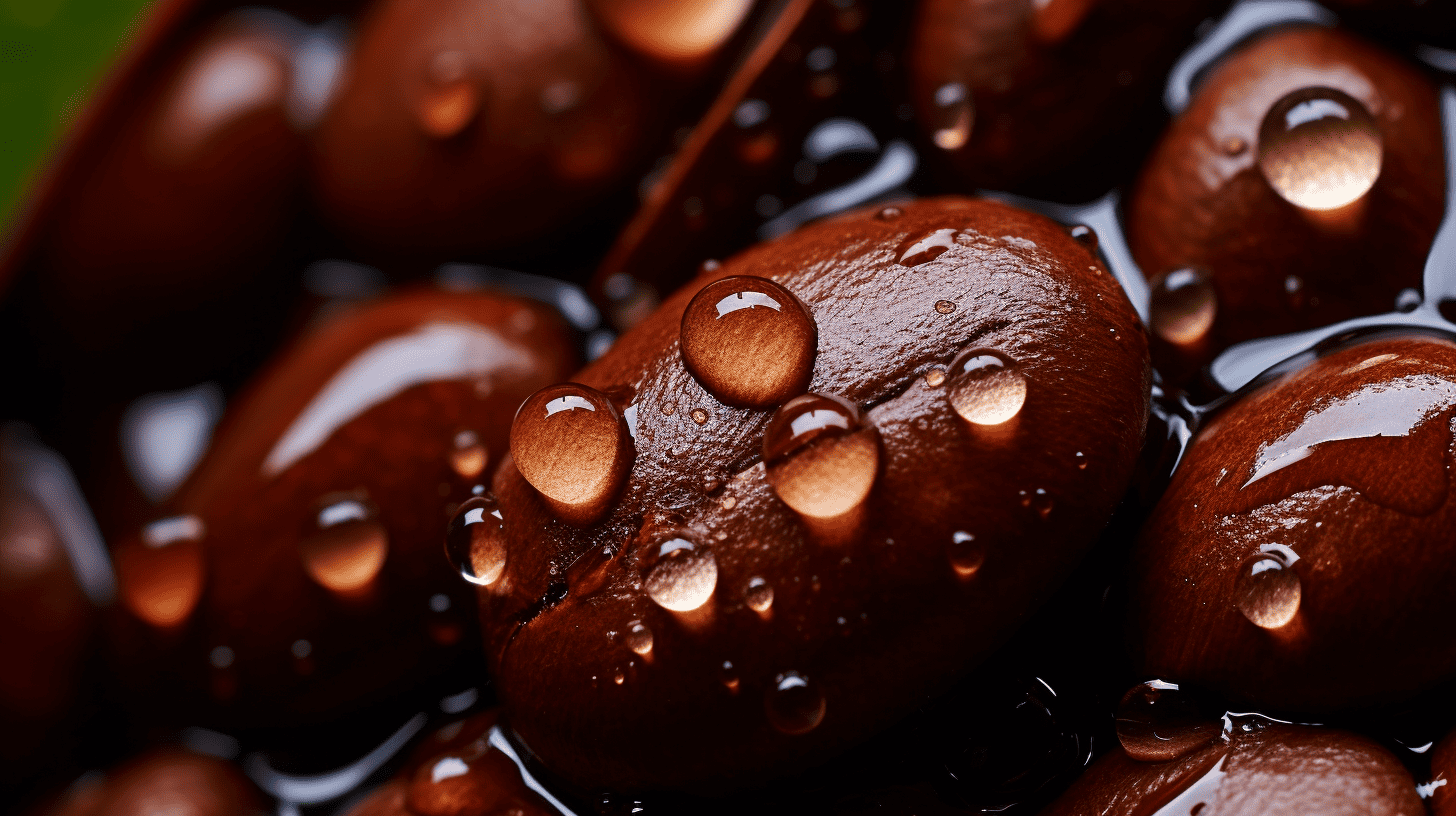Introduction
Are you a coffee lover looking to keep your calorie count in check? You’re not alone! The big question is: Is coffee zero calories? In this blog post, we’ll unravel the mystery behind the caloric content of our beloved Java and how it plays into weight management.
We’ll explore black coffee, common add-ins, their impact on calorie count, and tips for enjoying your cup while still controlling those calories.
Key Takeaways
- Plain black coffee has an insignificant calorie count of only one calorie, making it a great option for those monitoring their caloric intake.
- Adding sweeteners or other extras like flavored syrups and whipped cream can significantly increase the calorie count of your coffee and lead to weight gain.
- Strategies for reducing calorie intake while still enjoying coffee include sticking to black coffee or adding a small amount of low-calorie milk or sweetener, being mindful of portion sizes, incorporating coffee into a balanced diet and fitness routine, and focusing on moderation.
- While studies suggest that drinking coffee may aid in weight loss by boosting metabolism and energy expenditure, overconsumption of caffeine can adversely affect the body. It’s essential to manage caffeine consumption levels while enjoying your favorite beverage.
Understanding Coffee And Calorie Counting
Calories play a vital role in weight management, and analyzing the calorie content of coffee is necessary for those watching their caloric intake.
Defining Calories And Their Role In Weight Management
Calories are the units of measurement for the energy our bodies need to function. They come from four primary sources: carbohydrates, proteins, fats, and alcohol. The human body requires several calories to maintain its essential functions – like breathing, circulation, and keeping warm – known as basal metabolic rate (BMR).
Weight management involves balancing calorie intake with calorie expenditure or burning. To lose weight or prevent weight gain, it’s crucial to monitor how many calories we consume daily compared to how many we burn through physical activity.
For example, say your BMR calculates that you require approximately 2,000 calories daily for normal functioning.
Analyzing The Calorie Content Of Coffee
As someone who loves a good cup of coffee, I was curious about how many calories it has. After doing some research, I discovered that the calorie content of coffee varies depending on what you add to it.
A plain cup of brewed coffee has less than 5 calories and no fat, according to the USDA.
For example, a medium mocha latte from a famous chain coffee shop contains around 290 calories and 11 grams of fat per serving! That’s more than most people should have in one snack or drink item alone.
It’s important to remember that while drinking black coffee won’t significantly affect your daily caloric intake, consuming too much caffeine can lead to adverse health effects.
The Truth About Coffee And Calorie Counting
Plain black coffee contains only one calorie, making it an excellent option for those monitoring their caloric intake. But adding sweeteners or other extras can significantly increase the calorie count.
While Technically Not Calorie-free, Plain Brewed Coffee Only Contains One Calorie
As someone who drinks coffee regularly, you may wonder, “Is coffee zero calories?” Well, technically, not. However, according to the USDA, plain brewed coffee contains a meager amount of calories, with only one calorie per cup.
This small caloric value makes it an excellent choice for those monitoring their caloric intake without sacrificing taste or caffeine content. It’s essential to note that adding sugar or cream can significantly increase the number of calories in your favorite beverage.
So if you’re trying to keep your calorie count low, stick with black coffee or add a small splash of low-calorie milk or sweetener.
Black Coffee Has A Negligible Calorie Count And Is A Good Option For Those Monitoring Their Caloric Intake
As someone who closely monitors their caloric intake, I have found that black coffee is an excellent option for satisfying my caffeine cravings without adding significant calories to my diet.
According to the USDA, an 8-ounce mug of black coffee has only 2 calories, making it highly sustainable for anyone looking to keep track of their daily calorie count.
A plain cup of brewed coffee has less than 5 calories and no fat.
Adding Sweeteners Or Other Extras Can Increase The Calorie Count Significantly
While black coffee is a great low-calorie option for those watching their weight, adding sweeteners or other extras can quickly turn it into a high-calorie drink.
For example, just one tablespoon of sugar adds about 50 calories to your cup of joe! Popular flavorings like caramel syrup and whipped cream can add hundreds more calories to coffee drinks.
Those who enjoy specialty coffee drinks should know the calorie content and consider alternatives like lower-sugar or smaller portions.
Common Coffee Add-Ins And Their Calorie Counts
Comparing the caloric content of popular coffee additions such as sugar, milk, and flavorings can significantly affect your daily calorie intake.
Comparing Caloric Content Of Popular Coffee Additions
Regarding the calories in our coffee, it’s essential to know the various popular coffee additions and their caloric contents. Here is a comparison of the calorie counts of some commonly used coffee add-ins:
| Addition | Calories (per serving) |
|---|---|
| Sugar (1 tsp) | 16 |
| Honey (1 tsp) | 21 |
| Whole Milk (1 tbsp) | 9 |
| 2% Milk (1 tbsp) | 7 |
| Skim Milk (1 tbsp) | 5 |
| Almond Milk (1 tbsp) | 2 |
| Soy Milk (1 tbsp) | 8 |
| Whipped Cream (1 tbsp) | 30 |
| Half-and-Half (1 tbsp) | 20 |
| Flavored Syrup (1 tbsp) | 50-80 |
| Coffee Creamer (1 tbsp) | 30-60 |
As you can see from the table above, some additions, like almond milk and skim milk, provide fewer calories than other options. On the other hand, flavored syrups and coffee creamers can add up to quite a few additional calories to your daily intake. Remember to remember these numbers when customizing your coffee to ensure you’re staying within your desired calorie range.
Highlighting Strategies For Reducing Calorie Intake
Reducing calorie intake can be a challenging but effective way to achieve weight management goals while enjoying coffee. Here are some strategies for reducing calorie intake while drinking coffee:
- Stick to black coffee or add a small amount of low-calorie milk or sweetener: Black coffee has virtually no calories, and adding just a little bit of low-fat milk or natural sweetener can add flavor without adding significant calories. Avoid flavored creamers or sugar-heavy syrups.
- Be mindful of portion sizes and avoid oversized or sugary specialty drinks: Large, fancy coffee drinks from your favorite café can have hundreds of calories per serving. Opt for smaller sizes and consider asking for light syrup or nonfat milk.
- Incorporate coffee into a balanced diet and fitness routine: Coffee is not a substitute for healthy eating and regular exercise but can be part of an overall healthy lifestyle plan that includes both.
- Focus on overall calorie intake and moderation: While monitoring the calories in your coffee is essential, paying attention to the rest of your diet and your daily physical activity levels is crucial. Moderation is key.
Following these strategies, you can enjoy your daily cup of joe while staying within your caloric limits and achieving your weight management goals.
Effects Of Coffee On Weight Loss
Studies suggest that drinking coffee may aid in weight loss by boosting metabolism and increasing energy expenditure, but it’s essential to be mindful of added calories from sweeteners or milk.
Examining Studies That Suggest Coffee May Aid In Weight Loss
Studies have shown that coffee may aid in weight loss. Research indicates that caffeine, the active ingredient in coffee, increases metabolism and energy expenditure, which can contribute to weight loss and management.
Moreover, coffee has been shown to help suppress appetite and reduce cravings for sweet foods. A study showed that drinking coffee after lunch helped people eat fewer snacks throughout the day than when they did not drink coffee.
While these studies are promising, it’s important to note that overconsumption of high-calorie specialty drinks negates any potential benefits from plain black brewed coffee.
Discussing The Potential Pitfalls Of Overconsumption And Added Calories
As much as we all love our daily fix of coffee, consuming too much can lead to added calories and potential weight gain. While black coffee has an almost negligible calorie count, adding sugar, milk, or other sweeteners can significantly increase its caloric content.
Overconsumption of caffeine also has adverse effects on the body – it could cause anxiety, jitters, and insomnia, among others. It’s essential to be mindful of portion sizes while enjoying coffee and stick with low-calorie options whenever possible.
Incorporating exercise into your routine can help burn off some of the extra calories consumed from your favorite cup of coffee daily.
Tips For Enjoying Coffee Without Adding Calories While Achieving Weight Management Goals
Stick to black coffee or add a small amount of low-calorie milk or sweetener for a satisfying cup without added calories. Be mindful of portion sizes and avoid oversized or sugary specialty drinks.
Incorporating these tips into your routine can help you enjoy your daily dose of caffeine while staying on track toward your weight management goals.
Stick To Black Coffee Or Add A Small Amount Of Low-calorie Milk Or Sweetener
When it comes to enjoying coffee without adding calories, a few strategies can help. Here are some tips:
- Choose black coffee or add a small amount of low-calorie milk or sweetener.
- Stick to unsweetened almond, soy, or skim milk. These options have fewer calories than whole milk or cream.
- Steer clear of high-calorie syrups and whipped creams.
- Consider adding spices like cinnamon or nutmeg for added flavor without the extra calories.
- Be mindful of portion sizes and avoid oversized drinks that could pack in unnecessary calories.
- Remember that moderation is vital – enjoy your coffee as part of a balanced diet and fitness routine.
Be Mindful Of Portion Sizes And Avoid Oversized Or Sugary Specialty Drinks
As someone who enjoys drinking coffee, it can be easy to go overboard with portion sizes or indulge in sugary specialty drinks. However, to avoid consuming too many unnecessary calories and excess sugar, it’s essential to be aware of portion sizes and make smart choices regarding coffee additives.
Here are some tips for being mindful of portion sizes and avoiding oversized or sugary specialty drinks:
- Stick to smaller-sized cups when possible.
- Avoid ordering extra-large or super-sized coffee drinks.
- Opt for plain black coffee and add a small amount of low-calorie milk or sweetener if desired.
- Be wary of flavored syrups, whipped cream, and other high-calorie additives.
- Try low-calorie options like almond milk or cinnamon instead of sugar.
- Remember that even “healthier” add-ins like oat milk or agave nectar can still add significant calories to your drink.
- Read nutrition information online before ordering if you’re unsure about the calorie count of a particular drink.
By being mindful of portion sizes and making intelligent choices regarding additives, you can enjoy your daily cup(s) of coffee without sabotaging your overall health goals.
Incorporate Coffee Into A Balanced Diet And Fitness Routine
As a coffee lover who values health and fitness, I’ve found that incorporating coffee into a balanced lifestyle can be both enjoyable and beneficial. Here are some tips for making the most of your coffee intake:
- Choose quality coffee: Start with high-quality beans and brew methods to ensure you get the most nutritional value and flavor from your coffee.
- Stick to plain or low-calorie options: Opt for black coffee, or add just a small amount of low-fat milk or a natural sweetener like stevia or honey.
- Monitor portion sizes: Be mindful of how much coffee you consume daily, and avoid going overboard with oversized servings or frequent refills.
- Pair with healthy food choices: Coffee can be a great addition to a well-rounded meal plan, particularly when paired with healthy foods like whole grains, fruits, and vegetables.
- Time consumption appropriately: Consider timing your coffee intake around workouts or other physical activity, as caffeine has been shown to enhance athletic performance and help burn fat during exercise.
By incorporating these strategies for enjoying coffee within a balanced diet and fitness routine, you can reap the benefits of this beloved beverage without sacrificing your health goals.
Focus On Overall Calorie Intake And Moderation
As someone who loves a good cup of coffee, I know how easy it is to go overboard with calorie intake. Here are some tips for maintaining moderation and watching your overall calorie intake:
- Incorporate coffee into a balanced diet and fitness routine that supports your weight loss goals.
- Pay attention to portion sizes and avoid oversized or sugary specialty drinks.
- Opt for low – fat milk or unsweetened alternatives such as almond or soy milk instead of cream.
- Use natural sweeteners in moderation, such as honey or stevia, rather than artificial sweeteners.
- Sip slowly and mindfully to savor the flavor without overdoing it on calories.
- Be aware of the calories from snacks and treats you may pair with your coffee, like pastries or chocolate.
Focusing on overall calorie intake and making intelligent choices regarding coffee additives, you can still enjoy your favorite brew without derailing your weight management goals.
Conclusion: The Bottom Line On Coffee And Calorie Counting
In summary, while technically not “zero” calories, black coffee has an insignificant calorie count. However, adding sweeteners and other extras can increase the calorie content significantly.
Therefore, to enjoy coffee without adding unnecessary calories, stick to black coffee or add a small amount of low-calorie milk or sweetener. Be mindful of portion sizes and avoid oversized or sugary specialty drinks.
Incorporating coffee into a balanced diet and fitness routine can have health benefits such as weight loss, but moderation is vital in any food or drink with caloric value.
FAQs on Is Coffee Zero Calories?:
1. Is coffee zero calories?
Coffee in its purest form has no calories or carbohydrates and is considered a calorie-free beverage. However, adding cream, sugar, syrup, or other additives to your coffee can increase the calorie count significantly.
2. How many calories are in a black cup of coffee?
A plain black coffee typically contains no more than 5 calories per serving, making it an excellent low-calorie drink option for those looking to reduce their daily caloric intake.
3. Does drinking coffee help with weight loss?
While caffeine has been shown to boost metabolism temporarily and suppress appetite, the effect on weight loss is likely minor at best. Drinking unsweetened black coffee as part of a healthy diet and exercise routine may aid in weight management but should not be relied upon as a sole means of achieving significant weight loss.
4. Can I still enjoy my favorite brewed drinks while counting calories?
Yes! You can adjust your favorite coffees by opting for low-fat milk or non-dairy alternatives like almond or oat milk instead of regular creamer and foregoing added sugars altogether when making homemade brews at home. It’s always important to be aware of what you’re consuming and how much by tracking intake using reliable calorie-counting apps or systems if trying to maintain specific dietary goals.





Leave a Reply